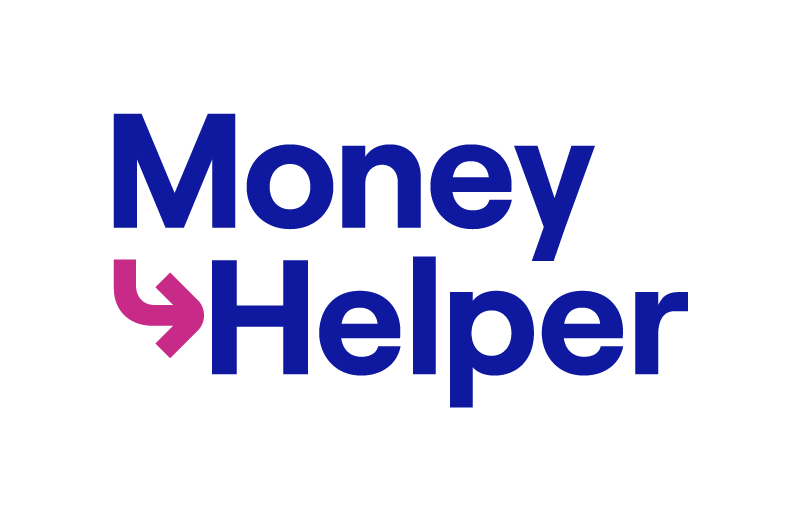Common IVA questions
If you have any questions about IVAs, you might find the answers right here - or just pick up the phone and give us a call.
IVA - the basics
- 1) What exactly is an IVA?
- 2) How could an IVA help me?
- 3) How do I know if an IVA is suitable for me?
- 4) Can an IVA help me with all my debts?
- 5) What would an IVA cost me?
- 6) What are the consequences of an IVA?
IVA - the people involved
IVA - the process
- 9) How do I enter an IVA?
- 10) Would I lose my home?
- 11) What would happen if my situation changed in the middle of the IVA?
1) What exactly is an IVA?
It's an Individual Voluntary Arrangement - an agreement between you and your unsecured lenders that's legally binding.
Rather than paying each of your unsecured debts separately, you'd make one lower payment into your IVA per month, and each lender would receive a portion of this.
Like bankruptcy, it's a form of insolvency that can actually write off debt, meaning you don't have to repay everything you owe.
Unlike bankruptcy, it's highly unlikely that entering an IVA will lead to you losing your property although you may have to release equity during the term of the IVA.
2) How could an IVA help me?
If your IVA goes ahead, it'll reduce your monthly payments to a level you can afford, as well as protecting you from any legal action by your lenders.
You'll make regular (reduced) payments for - in a typical IVA - 60 months. As long as it all goes according to plan, your remaining unsecured debt will be written off when your IVA comes to an end.
3) How do I know if an IVA is suitable for me?
An IVA could be the answer if you:
- Live in England, Wales or Northern Ireland, and
- Owe a total of £12,000 or more to two or more unsecured lenders, and
- Can't make the payments you originally agreed to make, but
- Can commit to making regular (reduced) payments throughout the IVA
That doesn't mean that everyone who can enter an IVA should enter one. There may be a different approach that's better suited to your needs. Wherever you stand with your debts, our advisers can help you explore your option.
4) Can an IVA help me with all my debts?
An IVA can help you pay off your unsecured / 'non-priority' debts (unsecured loans, credit cards, overdrafts, etc.) at an affordable rate - and write off any included debt that hasn't been repaid when it reaches a successful conclusion. Any unsecured debts not included in your IVA will remain outstanding.
At the same time, it can help you stay on top of your secured / 'priority debts' (like your mortgage/ rent, utility bills, etc.). That's because your IVA payments would be calculated to leave you with enough to cover all those expenses every month.
5) What would an IVA cost me?
Every IVA is different, as your IVA would be designed around your specific situation. Once you've discussed your situation with one of our advisers, they can calculate what you can really afford to pay per month - and whether or not your lenders would be likely to accept that.
If an IVA is the best way forward, your monthly payments would cover both payments to your lenders and the fees we charge for arranging your IVA and helping you make it a success. For more about our fees - click here.
6) What are the consequences of an IVA?
Entering into an IVA will have an impact on your credit rating, with records remaining on your credit history for six years from the date the IVA is registered. And although homeowners on an IVA aren't at risk of losing their home, they may have to release equity from their home in the final year of the arrangement. If they're unable to do so, their IVA might run for up to 12 months longer, so they can pay more through their monthly contributions instead.
7) Who would be involved in an IVA?
You would be involved, as would your unsecured lenders, the court, the IP (Insolvency Practitioner), and your Relationship Manager overseeing your IVA.
Your IVA will appear in the Insolvency Register (as bankruptcy would be), but it won't be advertised in the newspapers (as bankruptcy would be).
8) Would all my lenders have to agree to my IVA?
No. Your IVA would need to be approved by lenders who (between them) are owed 75% or more of your total unsecured debt.
If that happens, all your lenders will be bound by the IVA's terms, even the ones who voted against it, or didn't vote either way.
9) How do I enter an IVA?
You'd start by talking to one of our advisers. Once you've gone over your finances with them, they'll be able to tell you whether entering an IVA is likely to be the best way for you to get out of debt - and what exactly it would involve.
If you decide to apply for an IVA, we'll work together to write an 'IVA proposal' - so your lenders can see what you'd be able to pay into an IVA.
If enough of your lenders accept this IVA proposal, your IVA can go ahead. If they think you could afford a larger monthly payment, they might ask you to cut back on your spending in non-essential areas.
10) Would I lose my home?
As your credit rating will be affected by your IVA, you might find it harder to obtain credit and/or you may have to pay a higher rate of interest if you do. It's extremely unlikely that you'll lose your home - although you might have to release some equity if you're a homeowner, so you can pay more in to your IVA.
In fact, your IVA should make it easier for you to stay on top of your mortgage and avoid falling into arrears, since your IVA payments would be calculated to leave you with enough to cover your mortgage payment (and other essentials) every month.
If you entered bankruptcy, on the other hand, you'd have to release any equity over £1,000 - and you might be forced to sell your home.
11) What would happen if my situation changed in the middle of the IVA?
No-one's financial situation stays the same forever. A lot can happen in five years, and if your finances took a turn for the worse, it could threaten the success of your IVA.
If you lost your job, for example, or your mortgage payments rose too much, you might find you couldn't stick to the terms of your IVA anymore.
However, there is some flexibility 'built into' an IVA.
- If you ran into a one-off expense (like expensive car repairs, for example), you might be able to 'skip' a payment or two, and basically make them at the end of your IVA.
- If your disposable income dropped, your lenders might agree to an 'IVA Variation', a legally binding change to the terms of your IVA. Like the original IVA proposal, this IVA variation would have to be accepted by enough of your lenders.
- If you received a 'windfall' of some kind, your lenders might agree to a 'full and final settlement' - so your IVA comes to a successful end sooner than either you or your lenders expected.
Similarly, you may find your circumstances improve during your IVA. If that's just an increase in your available income, you'd normally be expected to put at least some of this towards your debts by increasing your monthly payment.
If your circumstances improve to the point where you can afford to repay your debts as normal, your IVA could end and you would resume making the payments you originally agreed.

It's good to know:
- We negotiate with the UK's major lenders and retailers
- We pride ourselves on our approach to great customer service
- Each month 1000s of people are benefiting from our help

To find other sources of free advice visit Money Helper. It's here to listen and give free, impartial, trusted guidance. Based around you and backed by government.
Subject to eligibility and acceptance. Fees Payable. Debt write off applies to unsecured debts only and on completion of an IVA, alternative solutions may be offered. If your IVA fails, it could lead to Bankruptcy. Your ability to obtain credit will be affected for at least 6 years. Homeowners may be required to release the equity in their property.